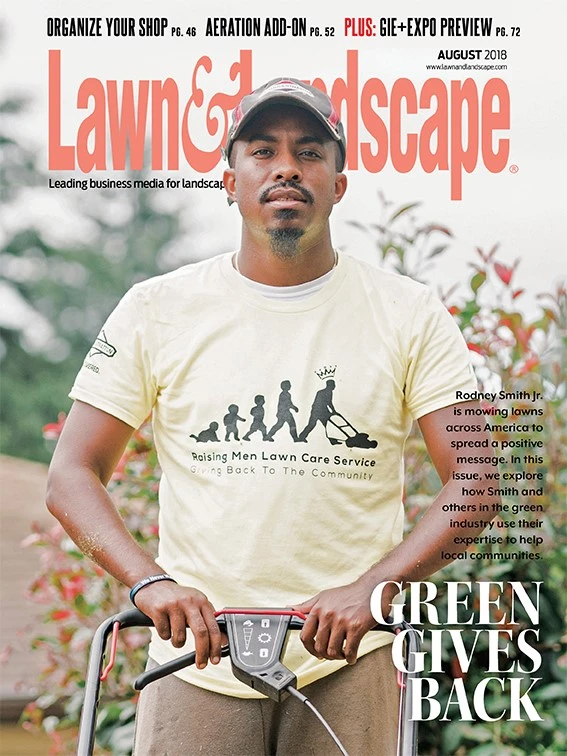
Not long after the start of the Great Recession, one district in Pittsburgh started a program to offer free lawn mowing services to help elderly, disabled and low-income residents. It started with one small neighborhood, and then spread to the entire District 2 area of Pittsburgh.
“The neighborhood had a tremendous amount of need,” says Theresa Kail Smith, Pittsburgh City Council member for District 2. “They had tons of abandoned properties.”
Kail Smith initially launched the grass-cutting program in her district after Shawn Maust, owner of Maust Landscaping, pitched the idea to her. She says he had been mowing lawns for the small neighborhood at discounted prices for a while and thought the service could benefit more people.
Although the city would pay Maust Landscaping to do these jobs, Maust says he bid the jobs for very discounted prices at about $15 to $20 per lawn. “It’s such a small task from my standpoint to do something to make people happy,” he says. “For the 15 minutes it takes me with the amount of equipment I have, it’s nothing.”
However, Maust’s contribution to this program wasn’t “nothing.” Kail Smith says Maust was able to save one resident’s life when he came to mow his lawn.
As Maust drove up with his mower to an elderly man’s home, he found the resident sitting in his car with the door open. Maust noticed the man was struggling to breathe because his oxygen tank had been disconnected and turned off when he went outside.
“He was turning blue,” Maust says. “He was pointing to the oxygen, so I run up the steps, into his house, turn the oxygen on – which I’d never done before – then after he got oxygen, helped him up the steps, into the house.”
Once he was breathing normally, Maust says he contacted paramedics to check in. “He helped save that person when he was there to cut grass,” Kail Smith says. “He provided an opportunity to keep him alive.”
Maust continued to help Kail Smith as a contractor for the service when it expanded to 17 neighborhoods. From there, they received numerous calls from all across Pittsburgh from individuals who needed help. Kail Smith says she had to turn down some people who lived outside the district. “Because I don’t represent the entire city, I could not help some of the people who were calling in,” she says. “Some of them were calling in crying. They were going to lose their home because they were constantly being cited for overgrown grass.”
Sponsored Content
Lawn and Landscape Marketing on a Budget
Digital marketing can feel overwhelming when you’re working with a limited budget. Websites, SEO, social media, and paid ads can quickly add up, but you don’t need to do everything to see results. By focusing on cost-effective strategies, you can still make a big impact without overspending.
With the popularity of the program, Kail Smith says it expanded citywide in Pittsburgh this year and is now called City Cuts. This year, Pittsburgh budgeted $150,000 to mow the lawns of elderly, disabled and veteran residents. The city found contractors like Maust to do these jobs for about $25 per lawn with the budgeted money. Kail Smith estimates about 75 to 100 Pittsburgh residents applied for City Cuts in each of the nine districts of the city.
“There are so many benefits,” she says. “There were so many stories of where people called and told us this helped them.”
Get curated news on YOUR industry.
Enter your email to receive our newsletters.
Explore the August 2018 Issue
Check out more from this issue and find your next story to read.
Latest from Lawn & Landscape
- Caterpillar names Christy Pambianchi as chief human resources officer
- Ceramica acquires Fundraising Brick
- Senske Family of Companies acquires Huron Pest Control
- Sunseeker unveils new X7 Series Robotic Mowers
- Bobcat Company debuts MT120 mini track loader
- Senske Family of Companies opens new corporate office
- Autonomowus Lawn Company adds robotic mowers to Genan tire recycling plant
- Visterra Landscape Group acquires Cleveland-based H&M Landscaping







